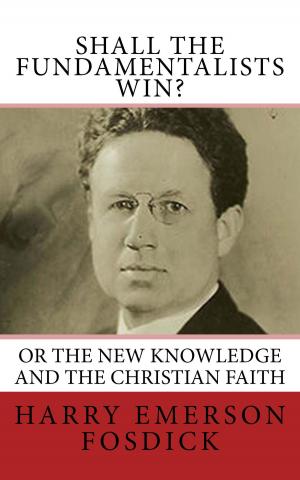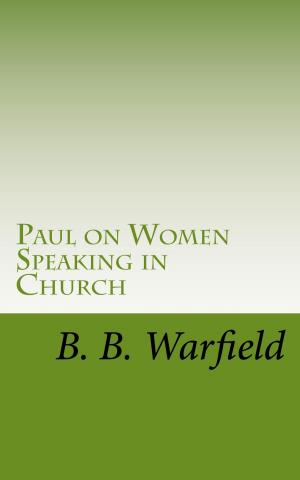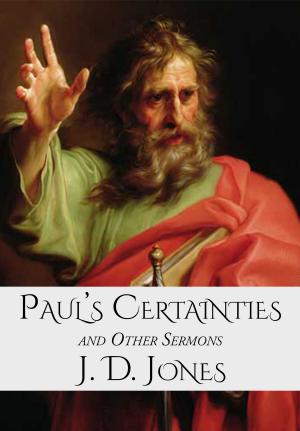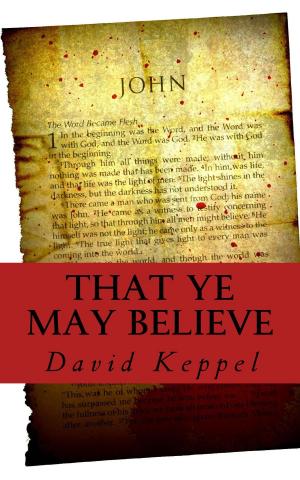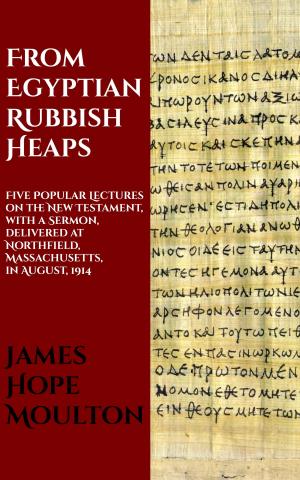The Resurrection of Jesus Christ
An Historical Fact With an Examination of Naturalistic Hypotheses
Nonfiction, Religion & Spirituality, Christianity, Christian Literature| Author: | John Kennedy | ISBN: | 1230001932751 |
| Publisher: | CrossReach Publications | Publication: | September 25, 2017 |
| Imprint: | Language: | English |
| Author: | John Kennedy |
| ISBN: | 1230001932751 |
| Publisher: | CrossReach Publications |
| Publication: | September 25, 2017 |
| Imprint: | |
| Language: | English |
What might be said, by way of preface to this volume, will be found said already in the introductory chapter and in other parts. It remains only that I bespeak the candid study of the course of argument which I have endeavoured to trace. I am very far from imagining that I have done justice to the subject, or that I could, even if the limits of the volume allowed greater fulness and expansion. But such as it is, it at least indicates evidence which, in amount and character, has never yet been fairly met by those who have laboured to prove it invalid or insufficient. But for the à priori determination not to accept the supernatural as historical, the evidence for the Resurrection of Jesus Christ would be held to be overwhelming.
The importance which Christians attach to the subject has its justification in the relation in which the fact of the Resurrection stands to the religion of Christ, that is to Himself and to the mission which He professed to have, and of which His apostles were the authorised expositors. It were a sheer waste of time and reason to argue for or against the historical credit of ten thousand alleged facts which have found a place in the story of mankind. The determination of ordinary historic questions, whatever intellectual interest may attach to it, in no wise affects the moral well-being of the world. And if the question whether Jesus rose from the dead was one of mere history, if it had not vital and influential relations to both God and man, we might dismiss it without much concern whether the answer should be yea or nay. But Strauss was right in describing this as a “burning question,” and in rebuking critics who evade it, or who decline to consider themselves bound to answer it. To the Christian it is a question of life or death.
There is nothing the Christian advocate desires more earnestly than that men should sift and sift every part of the evidence on which his faith rests. And there is nothing he has oftener to complain of than the indifferent and superficial, and not unfrequently supercilious, way in which men skim over and reject it. If he is bound not to accept lightly so mysterious a fact as that of the resurrection of Christ, others are bound not lightly to deny it or leave it undetermined. As to the mysteriousness of the fact, the ground taken in this book is, that what we have to prove is not merely the restoration to life of a dead man. “We have to do with One particular Man. And we contend that when we look at the circumstances and character of this Man, while the wonderfulness of His resurrection remains, its unlikelihood vanishes.” That HE should not rise from the dead, would be more mysterious than that He should.
It is with no misgiving that we challenge the world to find a spot in the character of Jesus Christ, or a flaw in His claims to be accepted as the Son of God and the Saviour of men. The storms of the present age around and against the Christian faith, are only such, however loud and severe, as have often raged before. “But history holds its ground. The wave with its froth passes away; the rock stands firm.”
What might be said, by way of preface to this volume, will be found said already in the introductory chapter and in other parts. It remains only that I bespeak the candid study of the course of argument which I have endeavoured to trace. I am very far from imagining that I have done justice to the subject, or that I could, even if the limits of the volume allowed greater fulness and expansion. But such as it is, it at least indicates evidence which, in amount and character, has never yet been fairly met by those who have laboured to prove it invalid or insufficient. But for the à priori determination not to accept the supernatural as historical, the evidence for the Resurrection of Jesus Christ would be held to be overwhelming.
The importance which Christians attach to the subject has its justification in the relation in which the fact of the Resurrection stands to the religion of Christ, that is to Himself and to the mission which He professed to have, and of which His apostles were the authorised expositors. It were a sheer waste of time and reason to argue for or against the historical credit of ten thousand alleged facts which have found a place in the story of mankind. The determination of ordinary historic questions, whatever intellectual interest may attach to it, in no wise affects the moral well-being of the world. And if the question whether Jesus rose from the dead was one of mere history, if it had not vital and influential relations to both God and man, we might dismiss it without much concern whether the answer should be yea or nay. But Strauss was right in describing this as a “burning question,” and in rebuking critics who evade it, or who decline to consider themselves bound to answer it. To the Christian it is a question of life or death.
There is nothing the Christian advocate desires more earnestly than that men should sift and sift every part of the evidence on which his faith rests. And there is nothing he has oftener to complain of than the indifferent and superficial, and not unfrequently supercilious, way in which men skim over and reject it. If he is bound not to accept lightly so mysterious a fact as that of the resurrection of Christ, others are bound not lightly to deny it or leave it undetermined. As to the mysteriousness of the fact, the ground taken in this book is, that what we have to prove is not merely the restoration to life of a dead man. “We have to do with One particular Man. And we contend that when we look at the circumstances and character of this Man, while the wonderfulness of His resurrection remains, its unlikelihood vanishes.” That HE should not rise from the dead, would be more mysterious than that He should.
It is with no misgiving that we challenge the world to find a spot in the character of Jesus Christ, or a flaw in His claims to be accepted as the Son of God and the Saviour of men. The storms of the present age around and against the Christian faith, are only such, however loud and severe, as have often raged before. “But history holds its ground. The wave with its froth passes away; the rock stands firm.”


